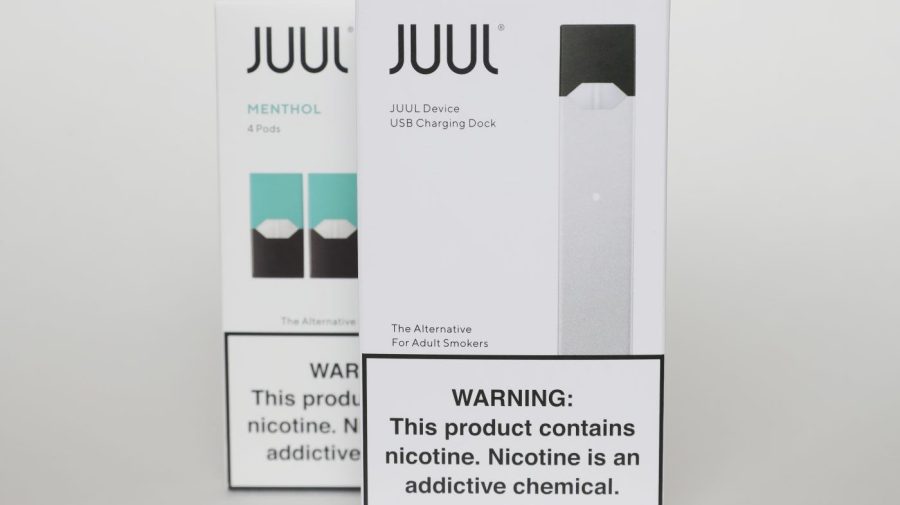
The Food and Drug Administration (FDA) authorized Juul Labs to keep its electronic cigarettes on the market, a large turnaround after the agency completely banned the company’s products in 2022.
The agency said on Thursday it would make the sale of Juul’s original e-cigarette device possible, as well as herbal patterns in tobacco and menthol flavors. The move followed an extensive scientific overview ‘showing that the benefit to adult smokers weighs the risk of young people or adults who do not smoke.
FDA said Juul had presented evidence that showed that the high rate of adults completely switched from cigarettes to either the tobacco or menthol-flavored Juul products.
“Although today’s actions allow these particular e-cigarette products to be legally marketed to adults 21 and older in the US, it does not mean that these tobacco products are safe, nor are the FDA approved,” the agency said.
FDA’s decision is the latest chapter for a business that was so popular that it was once synonymous with vaping. But as more young people begin to use the fruit and sweet-flavored products, the federal examination has grown.
Juul denied the allegations that he had marketed his e-cigarettes to children and teenagers.
The FDA announced a ban on the sale of Juul e-cigarettes nationwide in 2022, saying the company did not prove that the holding of its products on the market “would be suitable for the protection of public health.”
The agency suspended the order about two weeks later to make an internal overview of ‘scientific issues’ in the company’s application.
Despite the break, FDA’s actions almost bankrupted the company. The e-cigarette manufacturer also paid $ 1.7 million billion to solve thousands of lawsuits claiming that the company aggressively marketed its e-cigarettes to young people and fueled a vaping crisis.
The FDA considered Juul’s appeal for two years and formally recalled the ban and brought back the company’s application under scientific review.
By law, all electronic cigarette products must be legally marketed, and the businesses must submit scientific evidence of public health benefits.
“The FDA authorization of Juul products is an important step today to make the cigarette outdated,” Juul Labs CEO KC Crosthwaite said in a statement.
“We support the role of FDA in regulating tobacco and nicotine products,” Crosthwaite continued. “Americans using nicotine earn an orderly, reliable market in which they can confidently choose from a wide range of smoke-free nicotine products that are of high quality, innovative, supported by strict research, made in the FDA inspected manufacturing facilities and marketed on a responsibility.”
Juul is still no longer the Juggernaut that agrees and has lost a significant market share amid rising competition, including e-cigarettes that were illegally imported from China.
But antitobacco groups said they were upset about the FDA’s decision and said it was a conversion of the recent progress in reducing the use of the e-cigarette of youth.
“It’s a big step in the wrong direction to authorize the sales of the product that was responsible for this public health crisis in the first place,” said Yolonda Richardson, president and CEO of the Tobacco -Free Children Campaign.
“There is no doubt that this crisis was driven by Juul’s smooth, easy-to-land products sold in tempting flavors, including Menthol, was marketed in ways that have called on children and delivered massive doses of nicotine that can quickly add to children,” Richardson added.
The American Lung Association (ALA) blamed Juul in the same way for the Spike in Youth Vaping.
“It’s a serious mistake,” Ranjana Caple, senior manager of the federal advocacy for Ala, said in a statement. “Juul is responsible for the youth vaping epidemic, and its products have hooked a generation of children on nicotine. The authorization of these products indicates an incredible failure to protect public health.”
